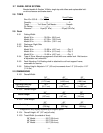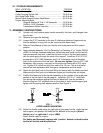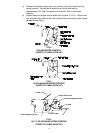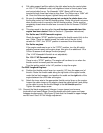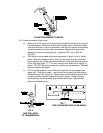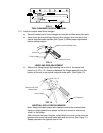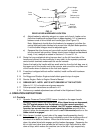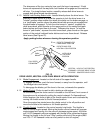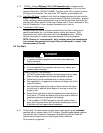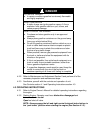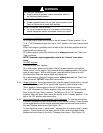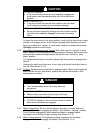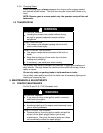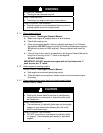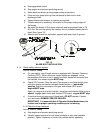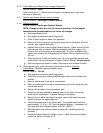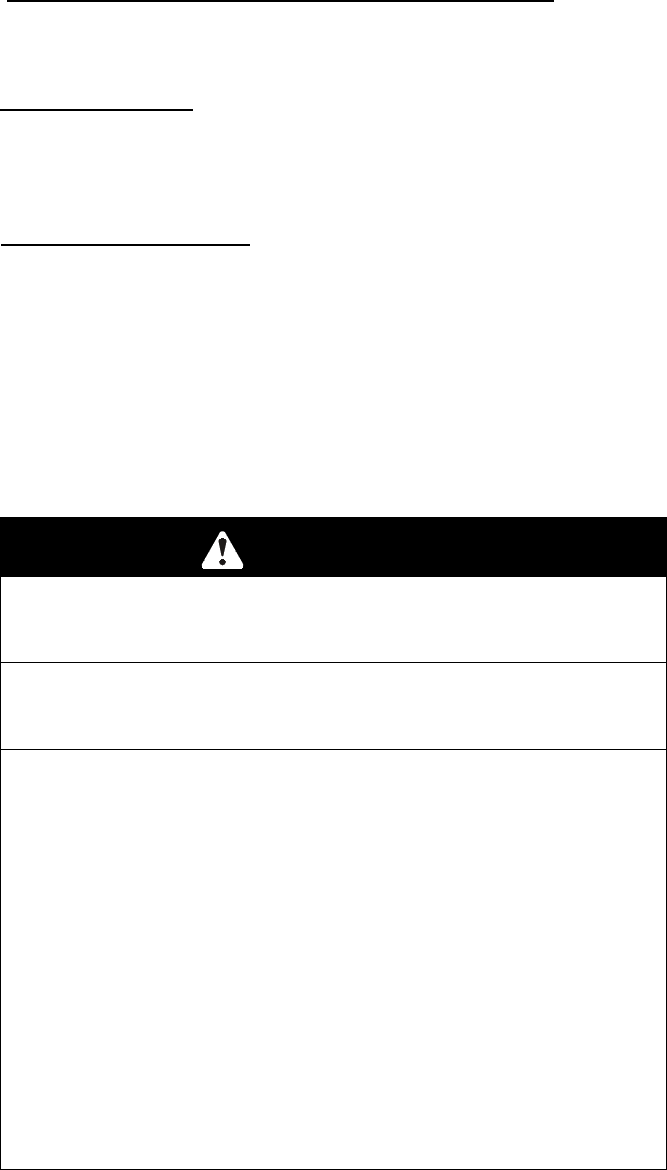
- 17 -
4.1.7 “Off-Run” Switch
(B&S
and 15 & 17
HP
Kawasaki
only)
: Located on the
console (Serial No.s 190,000 and higher) or front, left corner of the fuel tank
support (Serial No.s 150,000-189,999). Turn key to the “Run” position to allow
the engine to be started. Turn key to the “Off” position to shut engine off.
4.1.8 Fuel Shut-Off Valve: Installed in the fuel line midway between the tank and the
engine. The fuel shut-off valve is used to shut off the flow of fuel when parking
inside a building, during transportation to and from the job sites, and when the
machine will not be used for a few days. Rotate valve 1/4 turn clockwise to shut
fuel off. Rotatevalve 1/4 turn counter-clockwise to turn fuel on.
4.1.9 Transmission Shift Lever:
Located under the control console and behind the fuel tank. It shifts the 5-
speed transmission into five forward gears, neutral and reverse. Shift
transmission only when drive levers are in the
neutral
position. Shifting
without drivelevers in neutral may cause damage to the transmission.
NOTE: Reverse is “reverse assist” only, meaning when the transmission
is in reverse, the operator has to pull the unit backward to “assist” with
the movement of the unit.
4.2 Pre-Start
DANGER
POTENTIAL HAZARD
♦
In certain conditions gasoline is extremely flammable and
highly explosive.
WHAT CAN HAPPEN
♦
A fire or explosion from gasoline can burn you, others, and
cause property damage.
HOW TO AVOID THE HAZARD
♦
DO NOT
smoke while refueling, and stay away from an open
flame or where gasoline fumes may be ignited by spark.
♦
Refuel only in a well ventilated area, or refuel outdoors.
♦
Store gasoline in an approved container and keep it out of the
reach of children.
♦
Add fuel before starting the engine.
Never
remove the cap of
the fuel tank or add fuel when engine is running or when the
engine is hot.
♦
Never fill the fuel tank so that the gasoline level rises above a
level that is 1/2” below the bottom of the filler neck to allow for
gasoline expansion and prevent fuel spillage.
♦
If fuel is spilled,
DO NOT
attempt to start the engine. Move
away from the area of the spill and avoid creating any source
of ignition until fuel vapors have dissipated.
4.2.1 Fill fuel tank. For best results use only clean fresh regular grade
unleaded
gasoline with an octane rating of 87 or higher. Regular grade leaded gasoline
may also be used; however, combustion chamber and cylinder head will
require more frequent service. See Engine Owner's Manual.
Do not add oil to gasoline.



